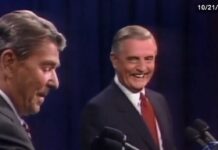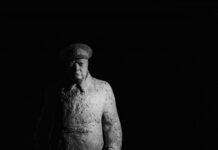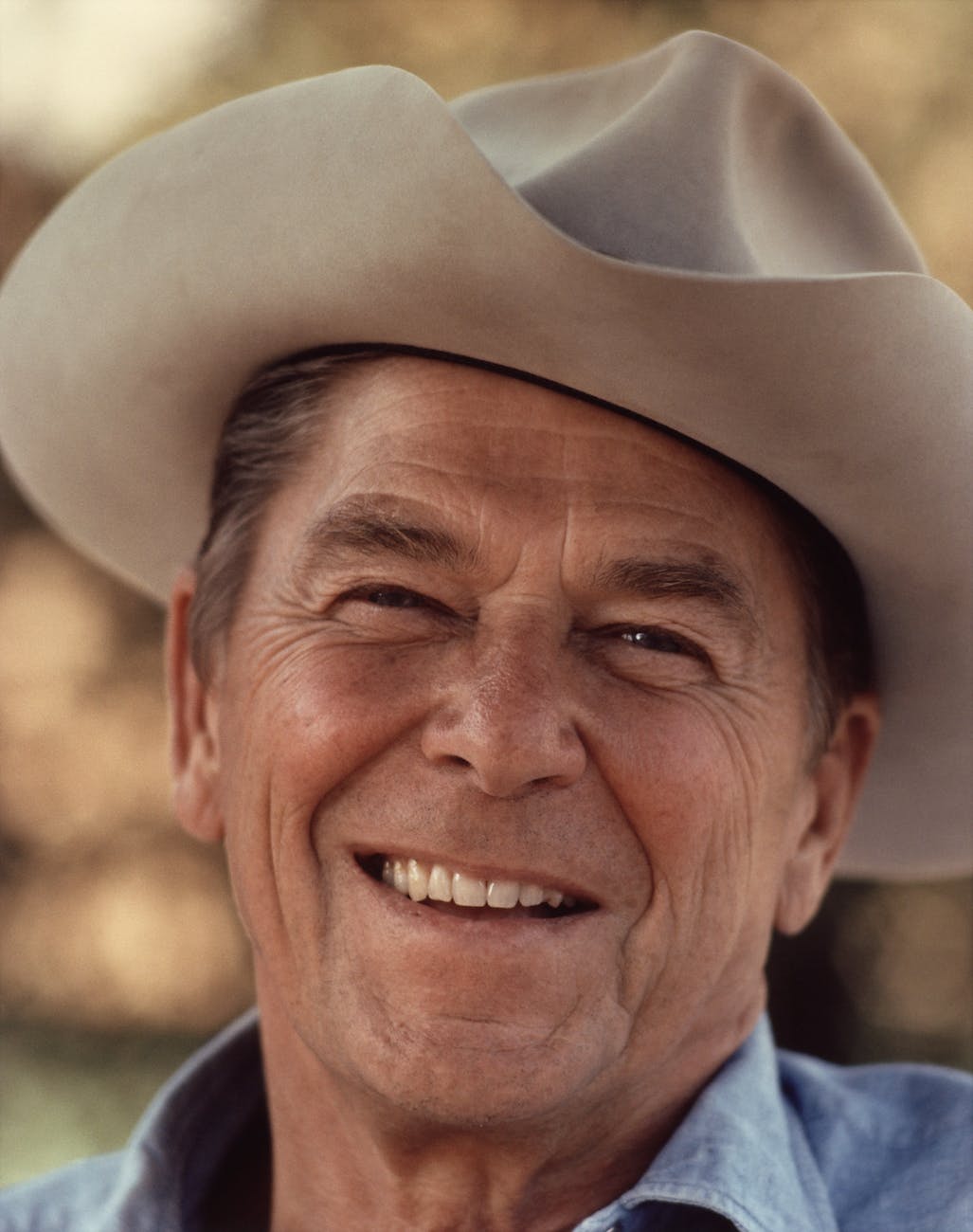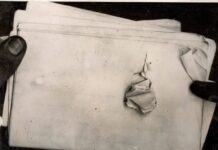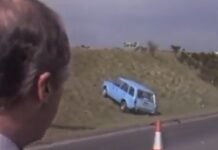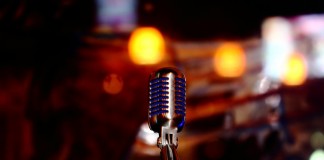Uno de los discursos más difíciles de la carrera de Ronald Reagan fue tras el desastre del Challenguer. El día que iba a ser recordado como el del discurso de la nación en uno de los mejores momentos económicos de la historia de EEUU tuvo que convertirse en la comunicación de crisis a una nación en shock por un terrible accidente espacial.
Además era una misión especial ya que al volar a bordo la primera maestra que iba al espacio, los colegios de todo EEUU y gran parte del mundo vivieron en directo el desastre.
Ronald Reagan dio- en apenas cinco minutos- una magistral demostración de discurso y gestión de crisis.
“Señoras y señores, esta noche tenía planeado hablarles sobre el estado de la Unión, pero los terribles acontecimientos de esta mañana me han obligado a cambiar esos planes. Hoy es un día de luto y de recuerdo. Nancy y yo estamos profundamente dolidos por la tragedia del transbordador espacial Challenger. Sentimos y compartimos este dolor con todo nuestro país. Esta es una gran pérdida nacional.
Hace 19 años, casi en el mismo día, perdimos 3 astronautas en un terrible accidente en tierra. Pero nunca habíamos perdido ningún astronauta en vuelo. Nunca habíamos sufrido una tragedia como esta. Y quizás nunca hemos olvidado el coraje que tuvieron la tripulación del transbordador. Pero ellos, los 7 tripulantes eran conscientes de los riesgos, aun así superaron estos temores y acometieron su trabajo brillantemente.
Hoy honramos a 7 héroes: Michael Smith, Dick Scobee, Judith Resnik, Ronald McNair, llison Onizuka, Gregory Jarvis, and Christa McAuliffe. Sufrimos estas pérdidas como una nación unida.
A las familias de “los 7”, sentimos el impacto de esta tragedia y compartimos vuestro dolor. Sentimos profundamente la pérdida. Vuestros seres queridos tenían un gran coraje, y esa gracia especial, ese espíritu que dice “dadme un desafío, y lo acometeré con alegría”. Ellos tenían un gran ansia de explorar el universo y descubrir sus secretos. Ellos escogieron el servir, y lo hicieron. Y nos sirvieron a todos nosotros hasta el extremo.
Nosotros hemos crecido acostumbrados a las maravillas que se han producido en este siglo. Es difícil ya que algo nuevo nos sorprenda. Pero durante 25 años, el programa espacial de los EEUU ha conseguido maravillarnos. Hemos crecido acostumbrados a la idea del espacio, y quizás olvidamos que esta aventura solamente acaba de comenzar. Todavía somos los pioneros. Ellos, los miembros del Challenger eran pioneros.
Y quiero decir algo a los escolares de toda América, quienes estaban mirando en directo el despegue del transbordador. Sé que es duro de entender, pero algunas veces, sucesos dolorosos como este suceden. Es parte de la exploración y el descubrimiento. Es parte del proceso de expandir los horizontes del ser humano. El futuro no pertenece a los temerosos, el futuro pertenece a los hombres con coraje. La tripulación del Challenger nos estaban conduciendo hacia el futuro, y nosotros los seguiremos.
Yo he siempre tenido una gran fé y un respeto a nuestro programa espacial. Y lo que ha sucedido hoy no la hará disminuir un ápice. Nosotros no ocultamos nuestro programa espacial. No lo mantenemos en secreto. Lo hacemos todo transparentemente al público. Ese es el camino de la libertad y no lo cambiaremos un ápice. Continuaremos la conquista del espacio. Habrá más vuelos espaciales, y más tripulaciones de transbordadores espaciales, sí, más voluntarios, más civiles, más maestros en el espacio. Nada acaba aquí; nuestras esperanzas de seguir el camino andado continúan.
Quiero añadir que deseo y puedo decir a cada hombre y cada mujer que trabaja en la NASA, o que trabaja en esta misión: “Vuestra decicación y profesionalidad nos han conmovido e impresionado durante décadas. Conozco vuestra angustia. La compartimos”
Hoy se produce una coincidencia. Este día, hace 300 años, el gran explorador Sir Francis Drake moría a bordo en las costas de Panama. Durante su vida, el gran explorador de los océanos dijo: “Hemos vivido del mar, muerto en él y enterrado en él”. Pues bien, hoy, nosotros podemos decir que la dedicación de la tripulación del Challenger era la misma que la de Drake.
La tripulación del transbordador espacial Challenger nos honra a todos nosotros. Nunca los olvidaremos, no olvidaremos la última vez que los vimos con vida esta mañana mientras se preparaban para el viaje, y nos decían adiós al mismo tiempo que “se separaban de sus lazos con la Tierra” y “tocaban el rostro de Dios”.
Gracias.”
Explosion of the Space Shuttle Challenger
Address to the Nation, January 28, 1986
by President Ronald W. Reagan
Ladies and gentlemen, I’d planned to speak to you tonight to report on the state of the Union, but the events of earlier today have led me to change those plans. Today is a day for mourning and remembering.
Nancy and I are pained to the core by the tragedy of the shuttle Challenger. We know we share this pain with all of the people of our country. This is truly a national loss.
Nineteen years ago, almost to the day, we lost three astronauts in a terrible accident on the ground. But we’ve never lost an astronaut in flight; we’ve never had a tragedy like this. And perhaps we’ve forgotten the courage it took for the crew of the shuttle; but they, the Challenger Seven, were aware of the dangers, but overcame them and did their jobs brilliantly. We mourn seven heroes: Michael Smith, Dick Scobee, Judith Resnik, Ronald McNair, Ellison Onizuka, Gregory Jarvis, and Christa McAuliffe. We mourn their loss as a nation together.
For the families of the seven, we cannot bear, as you do, the full impact of this tragedy. But we feel the loss, and we’re thinking about you so very much. Your loved ones were daring and brave, and they had that special grace, that special spirit that says, “Give me a challenge and I’ll meet it with joy.” They had a hunger to explore the universe and discover its truths. They wished to serve, and they did. They served all of us.
We’ve grown used to wonders in this century. It’s hard to dazzle us. But for 25 years the United States space program has been doing just that. We’ve grown used to the idea of space, and perhaps we forget that we’ve only just begun. We’re still pioneers. They, the members of the Challenger crew, were pioneers.
And I want to say something to the schoolchildren of America who were watching the live coverage of the shuttle’s takeoff. I know it is hard to understand, but sometimes painful things like this happen. It’s all part of the process of exploration and discovery. It’s all part of taking a chance and expanding man’s horizons. The future doesn’t belong to the fainthearted; it belongs to the brave. The Challenger crew was pulling us into the future, and we’ll continue to follow them.
I’ve always had great faith in and respect for our space program, and what happened today does nothing to diminish it. We don’t hide our space program. We don’t keep secrets and cover things up. We do it all up front and in public. That’s the way freedom is, and we wouldn’t change it for a minute.
We’ll continue our quest in space. There will be more shuttle flights and more shuttle crews and, yes, more volunteers, more civilians, more teachers in space. Nothing ends here; our hopes and our journeys continue.
I want to add that I wish I could talk to every man and woman who works for NASA or who worked on this mission and tell them: “Your dedication and professionalism have moved and impressed us for decades. And we know of your anguish. We share it.”
There’s a coincidence today. On this day 390 years ago, the great explorer Sir Francis Drake died aboard ship off the coast of Panama. In his lifetime the great frontiers were the oceans, and an historian later said, “He lived by the sea, died on it, and was buried in it.” Well, today we can say of the Challenger crew: Their dedication was, like Drake’s, complete.
The crew of the space shuttle Challenger honored us by the manner in which they lived their lives. We will never forget them, nor the last time we saw them, this morning, as they prepared for their journey and waved goodbye and “slipped the surly bonds of earth” to “touch the face of God.”
[Note: The President spoke at 5 p.m. from the Oval Office at the White House. His address was broadcast live on nationwide radio and television.]
Esperamos que te haya gustado " Ronald Reagan: Un presidente, una nave destruida, un discurso ".
Ahora te toca a ti :
Comparte: No olvides compartir este contenido en tus redes sociales para que otros puedan beneficiarse.
Comunica: Si te interesa formarte o necesitas ayuda con tu comunicación personal en Elocuent podemos ayudarte. Ponte en contacto con nosotros por teléfono: +34 916 307 552 , email:info@elocuent.com o en nuestras redes sociales.
También puedes darte de alta en nuestra newsletter para seguir recibiendo contenido gratuito:











